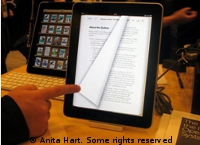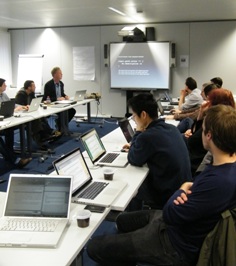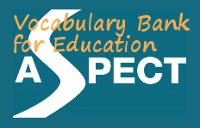ASPECT Newsletter 4
|
|
| Issue 4 – February 2011 |
|
|
|
|
|
David Massart, ASPECT Project Manager
ASPECT aims at developing best practice approaches to implementing standards for both educational content discovery and use. As the project comes to its end, these best practices are now available and will be published shortly as part of the project’s final public report. Among project's key findings, we highlight two recommendations in this newsletter: the importance of conformance testing; and the necessity of implementing content standards in a way that allows for flexible use.
Effective use of a specification profile, such as the LRE Metadata Application Profile, requires that this specification is correctly supported which can only be ensured by proper testing. ASPECT has produced a conformance test that can be used in different forms: as a stand-alone tool, an online tool or a software library that can be integrated to other software such as an OAI-PMH harvester. By allowing for systematical conformance testing at different stages of the metadata lifecycle, from metadata creation by content providers to its gathering by content aggregators, these tools make this lifecycle more efficient and, ultimately, improve the quality of services that, like the Learning Resource Exchange, depend on metadata quality.
Another important finding of ASPECT is that teachers are unlikely to reuse a learning resource ‘as is’ and want to have the possibility to tailor it to their needs (see the interviews of the teachers having taken part in the ASPECT summer school). Given this requirement, a specification such as IMS Common Cartridge may have considerable potential as it is already supported by tools that allow teachers to easily select and use parts of a resource while discarding other parts considered as less relevant.
|
|
|
|
|

European Schoolnet has just launched a new version of its Learning Resource Exchange (LRE) portal at lreforschools2011.eun.org that, after a short transition period, is intended to replace the current LRE portal available at lreforschools.eun.org. In addition to having been redesigned, the new portal benefits from many innovations that were developed during the ASPECT project. Among other things, one will note that:
- The new portal takes advantage of the new LRE metadata application profile (based on the IMS LODE specification) providing access to content available in different formats and versions (see lre.eun.org/node/6).
- Thanks to a “Social Data Manager”, information (such as favorite resources, tags, and ratings) produced by the users of the different portals connected to the LRE is managed centrally and integrated to the LRE indexes to improve search result precision and recall.
- As with all new European Schoolnet websites, the new LRE portal supports OpenId, which provides a safe, faster, and easier way to log in to portals.
- Moreover, the new portal benefits from improved metadata quality testing procedures.
|
|
|
| ASPECT Strategic Seminar on Educational Publishing Futures, 17-18 February 2011, Brussels |
|

This strategic seminar for 150 delegates will provide a platform where Ministries of Education, publishers, learning content repository owners and ICT vendors can discuss the future of educational publishing and digital content for schools.
The seminar is intended as a forum for debates whether:
- How professionally developed learning materials for schools and open educational resources can co-exist.
- How the market for eTextbooks and educational apps in schools is developing now that tablet, smartphone and other mobile devices are becoming mainstream.
- How ministries are supporting the Interactive Whiteboard common file format in response to the growing demand for interoperable IWB resources.
- How stakeholders have applied the new IMS Common Cartridge specification to K-12 content and tested these resources with teachers.
- How tools and services from the ASPECT project enable content developers to improve the metadata of their resources and make their content more easily discoverable.
- How publishers and content developers can participate in the European Schoolnet Learning Resource Exchange for schools.
The seminar builds on work carried out in the ASPECT project that has been developing best practices and also addresses new challenges for educational content that have been identified by Ministries in the European Schoolnet Policy and Innovation Committee and Interactive Whiteboard Working Group.
Registration for the seminar is now closed but presentations and a report on the seminar will be posted on the ASPECT web site.
|
|
|
| Presentations from the ASPECT Metadata Plugfest |
|

The ASPECT Best Practice Network Metadata Plugfest "Building Interoperability across Metadata Application Profiles" was held at the offices of the European Schoolnet on 18 January 2011 in Brussels, Belgium.
The Plugfest brought together technical teams to explore best practices related to the conversion of one metadata application profile to another. Twenty participants took part in a daylong event with demonstrations and discussions of tools for automating metadata crosswalks, application profiles, known interoperability issues and solutions.
Demonstrations included the ASPECT Vocabulary Bank for Education and the ASPECT transformer service. The discussions provided valuable opportunities for participants to grasp commonalities and differences in approaches and to explore the strengths and weaknesses of available tools used for building converters and crosswalks. The presentations are available for download at the ASPECT website.
Read more here
|
|
|
| Article: Vocabulary Bank for Education |
|

By Mike Collett, Vocabulary Management Group
The Vocabulary Management Group which developed the Vocabulary Bank for Education (VBE) as part of ASPECT had a successful dissemination event in London on 26 November 2010 to: raise awareness of the VBE and its associated services; encourage collaboration in the use of terminology services; and to demonstrate the latest leading-edge technologies. Presentations from the event and a VBE user guide can be downloaded at www.vocman.com/news/vbe-event
The ASPECT VBE provides a range of multilingual, controlled lists relevant to learning in the European Union, including those that are used to validate metadata profiles, and a thesaurus used to describe educational topics.
It is provided as a web application, hosted by the Vocabulary Management Group, which enables users to search or browse stored vocabularies in order to find out more about the terms used, their relationships, contexts and translations. It is based on Lexaurus Bank software and managers can use the Lexaurus Editor to both create and change vocabularies.
The repository of published vocabularies is available for anyone to view via a web browser and the VBE can be searched and browsed to locate vocabularies or individual terms without registration or logging in. In order to be able to download vocabularies users must register.
Read the full article here |
|
|
| IMS Learning Object Discovery & Exchange CM/DN finalized during IMS meeting in Utrecht |
|
The IMS Learning Object Discovery & Exchange (LODE) working group met in Utrecht, The Netherlands on February 14, 2011 to finalize its CM/DN draft specification.
The LODE specification aims to facilitate the discovery and retrieval of learning objects stored across more than one collection. IMS LODE can be seen as a glue specification that profiles existing general-purpose protocols in order to take into account requirements specific to the educational domain, rather than creating new protocols. It proposes three main data models:
- A LODE Context Set for the Contextual Query Language (CQL): a data model for the attributes of learning objects, which can be used for search by expressing educationally meaningful queries;
- A data model, named Information for Learning Object eXchange (ILOX), that organizes sets of metadata on learning objects to be used in data exchange; and
- A data model, named Learning Object Repository Registry Data Model, for learning object collections, to be used in discovering and configuring access to those collections.
These three data models are the results of the experience accumulated by the ASPECT project and other international team in making learning content globally discoverable. The final draft was sent to the IMS technical advisory board for approval. Once approved by the board, this candidate specification will enter a final phase of interoperability trials at the end of which it will become a full specification.
|
|
|
|
|
The ASPECT project is
coordinated by European
Schoolnet with support from the European Commission's eContentplus
Programme
http://www.aspect-project.org
|
|
|
